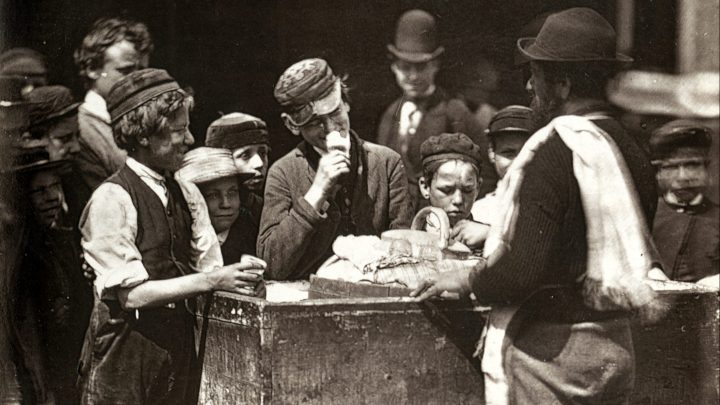
The barrow boys

We are watching “Trading Places” this holiday season for reasons that go beyond the movie’s holiday decorations and a very tattered Santa Claus suit. At its core, this comedy is about inequality, race and class. The film centers on two financial tycoons who wager that a fancypants upper-cruster (Dan Aykroyd) will be reduced to criminality if his privileges are taken away. They make a parallel bet on whether a petty fraudster (Eddie Murphy) can succeed in business if he is offered the trappings of the high life.
The film vividly suggests that wealth turns people into jerks, and there is real world data on this point. (We’ll delve deeper into that in next week’s newsletter.) It also explores what insider trading can look like and what it means to “corner” a market, which in the case of “Trading Places” is the futures market for frozen concentrate orange juice.
One thing that stood out for me when I rewatched the film was just how quickly Murphy’s character learns the financial trading game after the Duke brothers, a pair of well-heeled bosses at a Philadelphia commodities trading firm, pluck him off the street and give him a bank account and a fancy title at their firm. For those thinking part of the comedy here is the absurdity of a random street hustler transforming into a market maven, think again. There is a long tradition of people without extensive academic pedigrees working in the big leagues of finance. They instead drew on street smarts acquired in less formal markets to succeed.
When I was London correspondent for Marketplace years ago, I was fascinated to meet financial players affectionately known as barrow boys, a reference to the wheelbarrows that street market sellers once pushed throughout the city to sell everything from cucumbers and men’s socks to Queen Elizabeth II tea sets. Barrow boys knew how to read demand in a crowd of customers, bid up prices and come away with maximized profit. Old school investment banks that used to dominate the big money in London’s financial district had a tradition of hiring street smart hustlers to work in the trading pits. In other words, Murphy’s hustler character had a pretty strong resume for a job in the London financial markets of yore.
In 1986, “the City” — London’s version of Wall Street — experienced what became known as the Big Bang. It was an abrupt deregulation that ended fixed commissions that had made old-line financial firms rich over the centuries regardless of whether or not they delivered the best results for their clients. The Big Bang brought in a wave of new thinking and new competition during Prime Minister Margaret Thatcher’s conservative reign, yet the barrow boys — traders with street smarts but limited education — still played a role.
When I covered the City, barrow-boy slang persisted, like calling the number 2 a “prickly,” suggesting “prickly pear,” which sounds like “pair,” which suggests “two.” Or, instead of number 5, I’d hear someone with a Cockney accent say, “Lady Godiva,” which rhymes in a London accent with “fiver.” But over time, the system professionalized and street smarts took a back seat to formal training and, increasingly, technology.
“Trading Places” is available to rent or buy on several platforms. It also may be available to borrow as a VHS or DVD at your local library. Several libraries also have online versions available to rent.
There’s a lot happening in the world. Through it all, Marketplace is here for you.
You rely on Marketplace to break down the world’s events and tell you how it affects you in a fact-based, approachable way. We rely on your financial support to keep making that possible.
Your donation today powers the independent journalism that you rely on. For just $5/month, you can help sustain Marketplace so we can keep reporting on the things that matter to you.

















